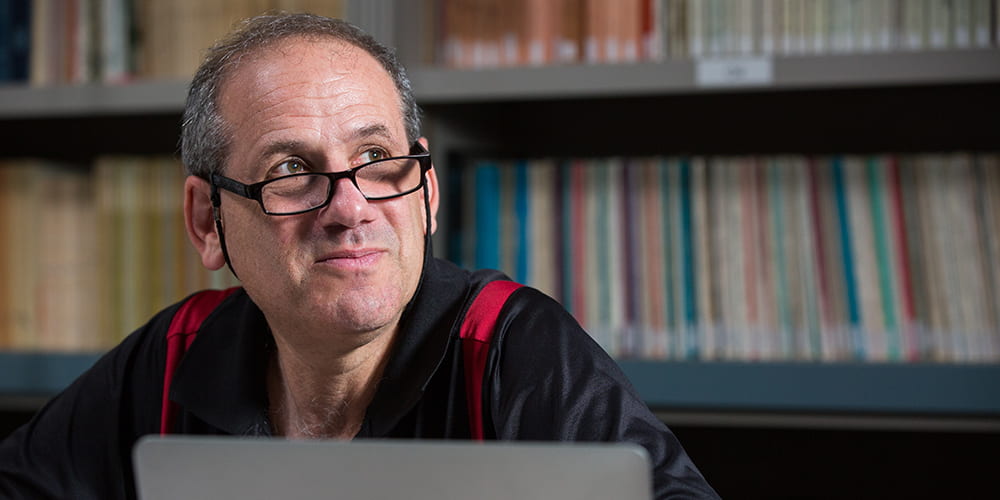Ungar Selected to the American Academy of Arts and Sciences

Distinguished Professor Peter Ungar has been selected as a member of the American Academy of Arts and Sciences.
Ungar, who joined the Department of Anthropology within the Fulbright College of Arts and Sciences in 1995, is the first University of Arkansas faculty member to be selected to the prestigious academy for a record of accomplishments made while serving at the university.
Other members of the academy with ties to the U of A include Bill and Hillary Clinton and J. William Fulbright, who were selected for achievements made in public office after their association with the university.
“This is a great honor for Peter and the University of Arkansas,” said interim Chancellor Charles Robinson. “He joins the ranks of the very best researchers in the history of his field, scholars such as Charles Darwin and Margaret Mead. We are all extremely proud of his accomplishments and this momentous and much-deserved recognition.”
Founded in 1780, the American Academy of Arts and Sciences is both an honorary society that recognizes and celebrates the excellence of its members and an independent research center of leaders from many disciplines, professions and perspectives who are addressing significant challenges. As leaders in the arts and sciences, business, philanthropy, and public affairs, academy members examine new ideas, address issues of importance to the nation and the world, and advance the public good.
Each year, following a rigorous nomination and review process, the academy elects new members in five classes — sciences, social sciences, humanities, arts and business. The primary criteria for election are excellence in the field and a record of continued accomplishment. Ungar was elected as part of the anthropology and archeology section within the social and behavioral sciences class.
Ungar did not know that he had been nominated, but learned of his selection when he opened his email on April 28 and saw this subject line: “Your Election to the American Academy of Arts and Sciences.”
“I was completely shocked,” he said. “I had absolutely no idea it was coming. To be honest, I thought it was spam or a scam until the formal announcement arrived in the mail and I saw it posted on the website.”
Ungar is an international expert on dental microwear texture analysis. He and researchers in his lab examine microwear on fossil teeth and use texture analysis to reconstruct diet and environments of the person or animal from which the teeth came.
He has observed wild apes and other primates in the forests of Latin America and Indonesia, studied fossils from tyrannosaurids to Neandertals, and developed new techniques for using surface analysis technologies to provide information about ecology and evolution from tooth shape and patterns of use wear.
Ungar has conducted research on oral health of the Hadza peoples of Tanzania, the last remaining hunter-gatherers in Africa. More recent work has focused on using the above tools to study impact of climate change on the ecology of Arctic mammals. He also documents and monitors dental pathologies in clinical settings.
Ungar also serves as director of the environmental dynamics doctoral program within the Graduate School and International Education.



